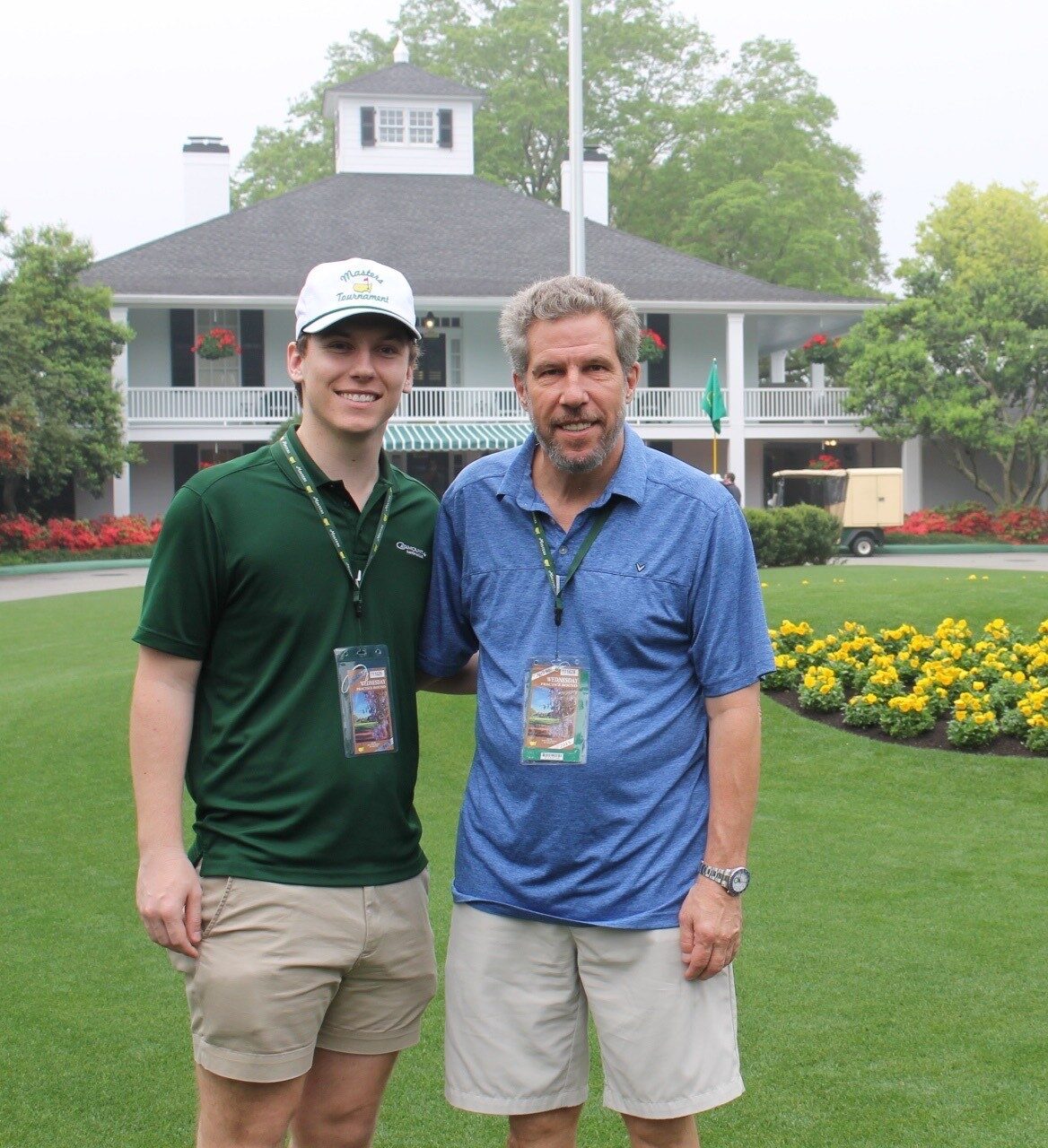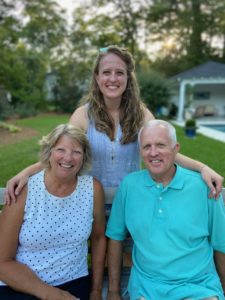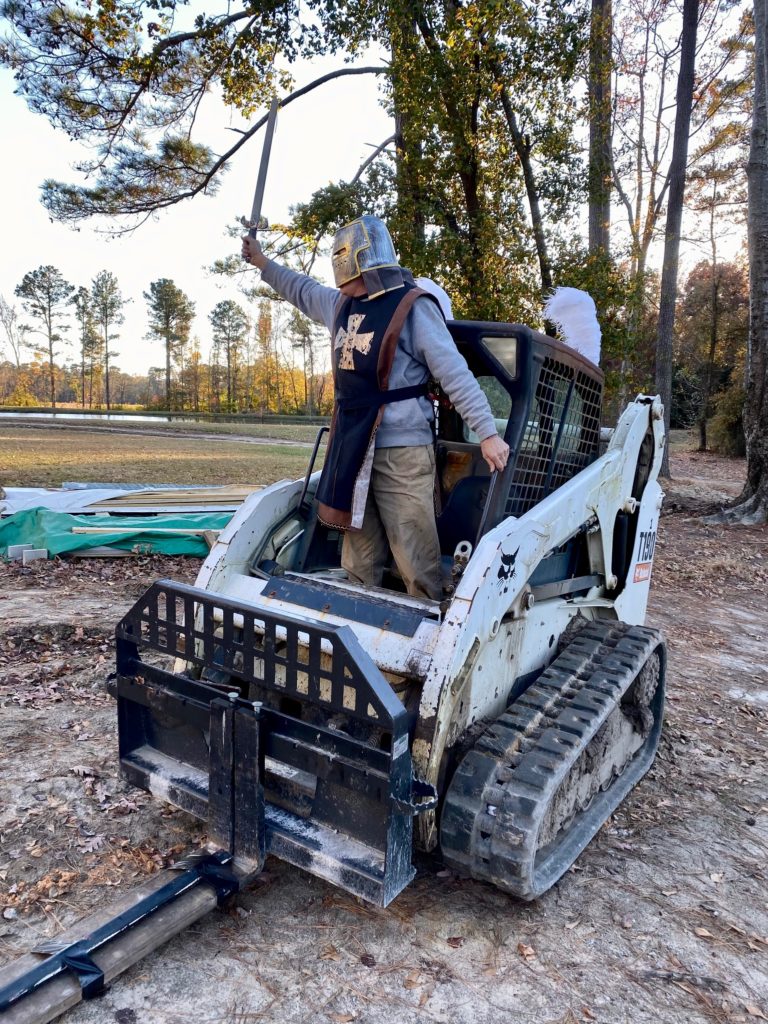
The Legacy
April 11, 2024
This is a guest post by Christopher Wood, Jr, son of the KCA’s late Board Chair and friend, Dr. Christopher…
Read More
By D’Ann George, PhD, Medical Writer

On a recent Sunday afternoon, Allen Rogers was riding a Bobcat tractor around his 500 acre farm in South Carolina, a gathering place for his extended family. When he’s not working on the grounds of the farm or the ” barndominium” there, he spends his time renovating his personal house on a lake in Pinehurst, North Carolina.
“Immunotherapies have let me live a normal life,” said Rogers, who was diagnosed with renal cell carcinoma (RCC) in 2007 at age 51. “I work on something every day.”
Rogers’s medical record reads like a mini history of how therapeutic approaches for kidney cancer have evolved over 15 years. A civil engineer living in Ohio with his wife and children, Rogers started his medical care at the James Cancer Center, part of Ohio State University. After his cancer recurred in 2009, Rogers received high-dose interleukin-2, an early and very toxic RCC treatment that is rarely used today.
He initially responded but one year later he recurred. Despite more surgery to remove nodules in his lung and radiation to a lymph node, more cancer appeared, so Rogers tried the tyrosine kinase inhibitor Sutent (sunitinib), a common targeted therapy in use at the time. After another year, he progressed again and made the switch to a different inhibitor for about six months, when the reappearance of lymph nodes and nodules meant it was time to go back to try something else.
With all the standard therapies exhausted, Rogers’s only choice was to join a clinical trial and hope that the randomized arm he landed on would deliver a drug that would keep his cancer at bay. He did, and the new drug, an immunotherapy called Opdivo (nivolumab), shrank his lymph nodes and bone lesions. He responded for two more years – a remarkable result at that time.
However, by 2016, shortly after moving to North Carolina and continuing care under Dr. Daniel George, a medical oncologist at Duke University, Rogers’s tumors were growing again. After a brief treatment course with another tyrosine kinase inhibitor, George discussed a retrial with Opdivo – but this time, in combination with Yervoy (ipilimumab), a combination that was FDA approved in 2015 for previously untreated metastatic kidney cancer patients.
“We discussed the rationale, that adding Yervoy might help Opdivo to work again,” George said.
The strategy worked. After three months, Rogers stopped Yervoy and continued Opdivo alone for another two years with essentially no side effects and his disease in remission.
However, in 2020, cancer in his chest grew, blocking his esophagus and he lost weight quickly because he couldn’t eat. A feeding tube was placed into his stomach to keep him alive, but surgery to remove the cancer was not possible.
“He had a tumor in the middle of his chest that we couldn’t resect,” George said. “We discussed hospice care, but Rogers was not ready. I told him if he could gain back 10 pounds, we would try Yervoy and Opdivo another time.”
Rogers did, and the combination worked again, almost completely shrinking his tumor. Rogers regained his strength and weight. Eventually his feeding tube was removed.
Today, Rogers remains in remission on another immunotherapy combination, Keytruda (pembrolizumab) and Lenvima (lenvatinib).
Since he was first treated with Opdivo nine years ago, Rogers received 6 different therapies that were not available in 2013, each prolonging survival enough to benefit from opportunities with another therapy. While the immunotherapy road has been long and bumpy, Rogers said he has no regrets. “I’d do it all over it again,” he said.
For Rogers, the remission means that it’s time to get back on his Bobcat.
“My wife is counting on ‘Dan the Man’ to keep me alive long enough to finish this project.”
1 thought on “Allen Rogers is living the history of immunotherapy”
Very encouraging ,as recently my dear husband is diagnosed with CCCarcinoma 4th stage . Will start on Immunotherapy on 19/09/2022 .
I have faith he will recover .